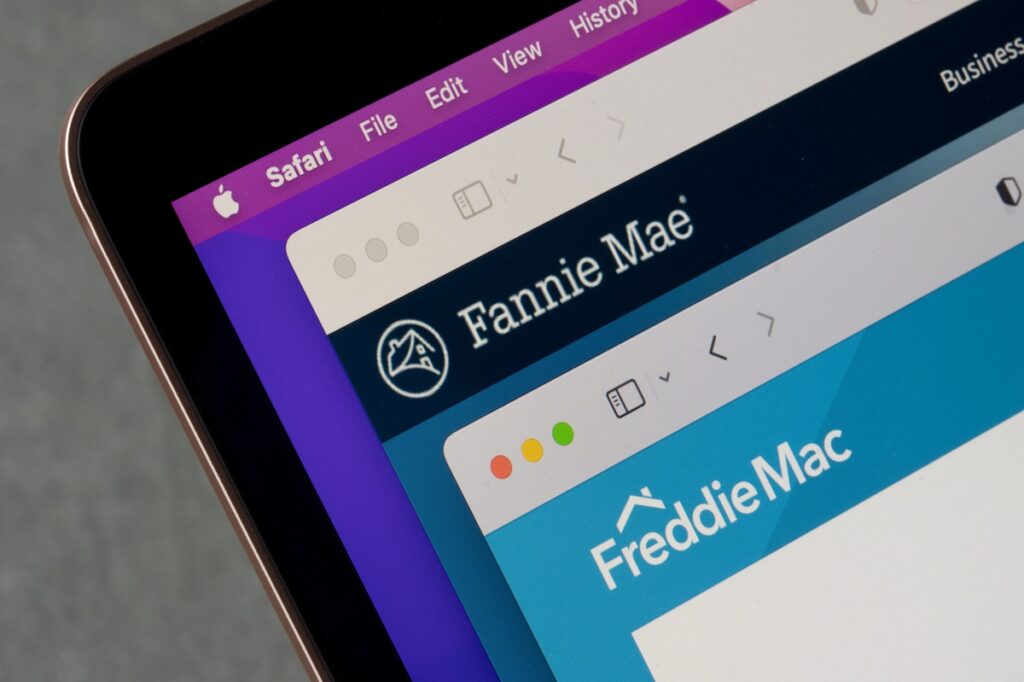President Donald J. Trump’s recent announcements about privatizing the government-sponsored entities (GSEs)—Fannie Mae and Freddie Mac—could have far-reaching implications for homebuyers, investors, and the broader economy.
On May 27, President Trump took to social media platform Truth Social, stating: “Our great Mortgage Agencies, Fannie Mae and Freddie Mac, provide a vital service to our Nation by helping hardworking Americans reach the American Dream—Home Ownership. I am working on TAKING THESE AMAZING COMPANIES PUBLIC, but I want to be clear, the U.S. Government will keep its implicit GUARANTEES, and I will stay strong in my position on overseeing them as President. These Agencies are now doing very well, and will help us to, MAKE AMERICA GREAT AGAIN!”
Fannie Mae and Freddie Mac help provide stability and affordability to America’s home mortgage market. The National Association of Realtors (NAR) reports that Fannie and Freddie support approximately 70% of the U.S. mortgage market. Government-backed mortgages are loans obtained through private lenders, but are insured by one of three federal government agencies: the Federal Housing Administration (FHA), the U.S. Department of Agriculture (USDA), or the U.S. Department of Veterans Affairs (VA).
The President’s post on Truth Social was his second post related to privatizing the GSEs within a week, having stated, “I am giving very serious consideration to bringing Fannie Mae and Freddie Mac public. I will be speaking with Treasury Secretary Scott Bessent, Secretary of Commerce Howard Lutnick, and the Director of the Federal Housing Finance Agency, among others, and will be making a decision in the near future. Fannie Mae and Freddie Mac are doing very well, throwing off a lot of CASH, and the time would seem to be right. Stay Tuned!!”
On September 6, 2008, with consent of both Fannie Mae’s and Freddie Mac’s Boards of Directors, the Director of the Federal Housing Finance Agency (FHFA) exercised statutory authority to place each GSE into conservatorship. This move, originally intended as a temporary move, established the two conservatorships in response to a deterioration in the nation’s housing market that damaged the financial condition of each, and left both of them unable to fulfill their missions without government intervention.
The Federal Housing Enterprises Financial Safety and Soundness Act of 1992 as amended by the Housing and Economic Recovery Act of 2008, authorizes the FHFA as conservator to “take such action as may be necessary to put the regulated entity in a sound and solvent condition; and appropriate to carry on the business of the regulated entity and preserve and conserve the assets and property of the regulated entity.”
Before being taken into conservatorship, Fannie Mae and Freddie Mac had what was known as an “implicit guarantee”—the market’s assumption that if something went wrong, the government would intervene and save them.
News of Trump’s announcement impacted the financial markets, with stock prices of both GSEs surging as Fannie Mae’s shares rose 9.3% to $11.53, and Freddie Mac shares rising 13.4% to $8.63.
“Privatizing the GSEs could be seen as a huge potential success for investors and unfinished business for the Trump administration, since the last time GSE reform was actively pursued was the second half of the first Trump presidency,” Kenon Chen, EVP of Strategy and Growth at Clear Capital, told U.S. News & World Report. “Privatization is also consistent with the Trump administration’s efforts to reduce regulation and the scope of government oversight.”
Many industry experts predict a potential increase of 0.5 to one percentage points in mortgage rates post-privatization, with the 30-year fixed-rate mortgage (FRM), currently sitting in the 6.96% range, jumping up to 8%.
And as Steven Glick, Mortgage Sales Director for HomeAbroad, a fintech platform, explained to U.S. News & World Report, “Over time, rates could stabilize, but only if private investors step in to replace the security that government backing provides today. If the transition is messy, rates could go even higher, and that would seriously impact home affordability.”
In a statement to news outlet The Hill, Senate Democratic Leader Chuck Schumer criticized President Trump’s plan, noting it would increase average mortgage costs, with the average family being hit with an $1,800 to $2,800 increase in annual mortgage costs.








